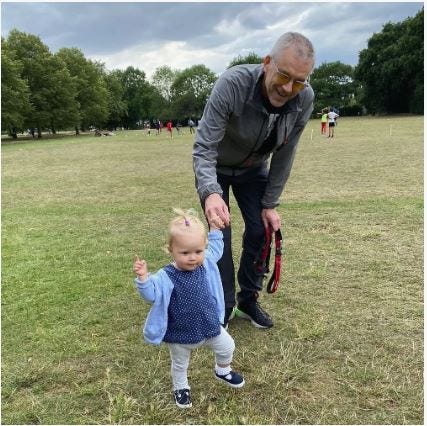The Big Tech Break Up – Obliquity and Successful Children
Successful Children

What do Howden Joinery, Aggreko and PayPal all have in common? Apart from being highly successful businesses in their own chosen markets (fitted kitchens, temporary power rental, and online payments), they are all the spin outs from other, and at the time larger, corporate entities. Aggreko’s original parent company was a pea processor and contract logistics business called Christian Salvessen, Howden Joinery was a side bet of the now defunct furniture retailer MFI, while PayPal was a subsidiary of eBay. They have all also grown much faster than they did under direct ownership, and are all now bigger than their original parents.
Obliquity
These companies typically offer high growth potential that have been starved of capital or management time, or both, and subsequently develop rapidly when given sufficient amounts of both. Very often these companies have never been directly marketed to investors via an IPO or capital markets sell-side event, rather just issued in specie to existing owners of the parent business, Their subsequent strong performance is testament to the reality that success is very often oblique, or indirect (see John Kay’s excellent book Obliquity for more information).
Breaking Point
I have been thinking about this observation as we had the Big Tech Barron Congressional show trial followed by a demonstration of amazing business performance from the defendants, with very strong Q2 results from Apple, Amazon and Facebook and a resilient showing from Alphabet. While there was clear evidence of confused and partisan activity on the Congressional committee, there was also sufficient evidence presented that we are probably at the beginning of the end of this era of Big Tech, and there will be remedies imposed for most if not all of those FANGs on show. Possible de-merger solutions would include independence for: AWS, YouTube, Instagram, and WhatsApp.
Bring it on ...
As an Amazon shareholder I am looking forward to the day they spin out AWS to me. If this happens, and I suspect Amazon might be forced to do so, then it could ultimately be bigger than its current parent. At least it should be able to grow more quickly as an independent entity and generate higher returns than having to play second fiddle to the core Amazon e-commerce platform. Similarly an independent WhatsApp with over 2 billion active users in 180 countries having to find its own sustainable revenue streams could become a highly attractive asset. While FaceBook is not looking for a quick monetisation of this reach as a direct WhatsApp owner, I would expect some quick and novel thinking.
It's Not Evil to Build Moats
The assertion from the Tech Barrons on Wednesday that because their companies offered such undeniable consumer value that they were not guilty of monopoly behaviours is as misguided as the view that they are inherently evil people and should be punished. The relevant question to ask is the counterfactual: if Facebook had been correctly prevented from buying Instagram, would that have resulted in a better outcome for consumers? We will never know, but my strong hunch is that it would have done. A hint that this might be the case was offered on Friday when Pinterest (the acceptable, non-toxic social network) positively surprised partly by what was referred to by its boycott tailwind impact on ad revenues in July (seeing revenues up by 50% year on year). By doing their shareholder value best and building wider and deeper moats, Big Tech have stifled opportunity for both their own subsidiaries and their smaller competitors. The break up of Big Tech offers an opportunity to correct for this and set free some stifled children, but also allow second tier tech players (Pinterest, Shopify and others) access to the top table.
Set Them Free
I see this successful children concept as part of a wider life lesson, that success is not always, or even often, the direct result of an intended plan. So many new products, or innovative business techniques are by products of other endeavours, or an unexpected outcome from what was originally intended. More generally very often amazing companies are simply the result of the combination of passion, enthusiasm and an enquiring mind with that of serendipity. The greater the opportunity for these well located enquiring minds to find capital and a strong sense of purpose the better for all of us, investors, consumers and governments.
Let Them Innovate
As a shareholder of Amazon, Alphabet and Facebook I would welcome the opportunity to be given shares in some of their children AWS, Instagram, WhatsApp and YouTube, I would have high hopes for them to prosper and deliver strong returns. They would sit nicely alongside my holding in Pinterest. It would be fascinating to see what variation of moat building strategies they might yet evolve.
The post The Big Tech Break Up – Obliquity and Successful Children appeared first on Progressive.



